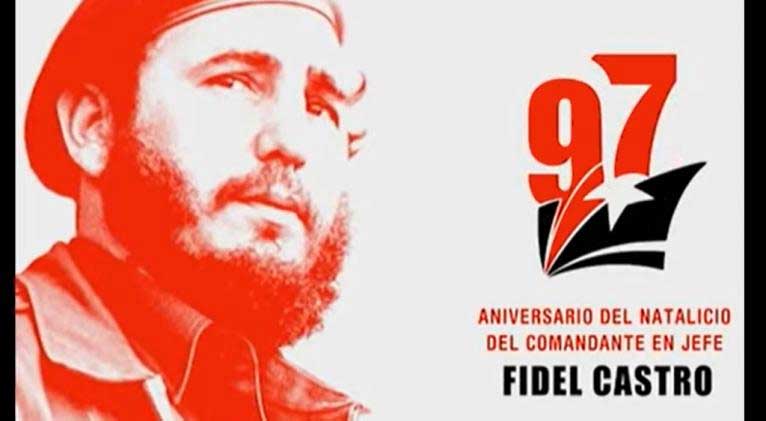Seven years after his death, his imprint continues to mark the country’s efforts to consolidate its sovereignty and independence, and the permanent improvement of the socialist system, in the face of U.S. hostility and the tightening of the blockade imposed by that power for more than 60 years.
When he entered Havana on January 8, 1959, leading the rebel forces that had defeated the dictatorship of Fulgencio Batista (1952-1959), Fidel Castro was already a living legend, and since then he became the paradigm of a Latin American and world revolutionary.
His political sagacity, prestige and vocation for solidarity, Latin Americanism and Third Worldism, allowed him to lead for almost five decades the Cuban resistance against the most powerful empire in history, and to place himself at the center of the events that marked the world in the last century.
He personally led, among other military and political battles, the victory of the Cuban people over the mercenary aggression at Playa Giron (Bay of Pigs, 1961), and his prestige grew in 1962, during the October Crisis, or Missile Crisis, when, according to the Cuban Argentine guerrilla Ernesto Che Guevara, he shone as a statesman rarely did.
His contributions to the strengthening of leftist forces in Latin America and the rest of the planet, his contribution to the anti-colonialist struggles in Africa, to the defeat of Apartheid in South Africa, and to the unity of the nations of the so-called Third World, among other redeeming causes that marked the 20th century, are also recognized.
According to Abdelaziz Bouteflika, president of Algeria from 1999 to 2019, Fidel possessed the rare faculty of traveling to the future, to later return to tell the tale, and -he affirmed- “will undoubtedly have the merit of being included in the pantheon of the few men who were both precursors and dynamic actors who designed the march of our world”.
For his brother in blood, arms and ideals, Army General Raúl Castro, Fidel was the most illustrious son of Cuba in the 20th century, “the one who showed us that it was possible to attempt the conquest of the Moncada Barracks; that it was possible to turn that setback into victory”.
That is the undefeated Fidel who continues to summon Cubans with his example and with the demonstration that it is possible and possible to overcome any obstacle, threat or turbulence in our firm determination to build socialism in Cuba, or what is the same, to guarantee the independence and sovereignty of the homeland, he said on that occasion.
 Escambray ENGLISH EDITION
Escambray ENGLISH EDITION





Escambray reserves the right to publish comments.